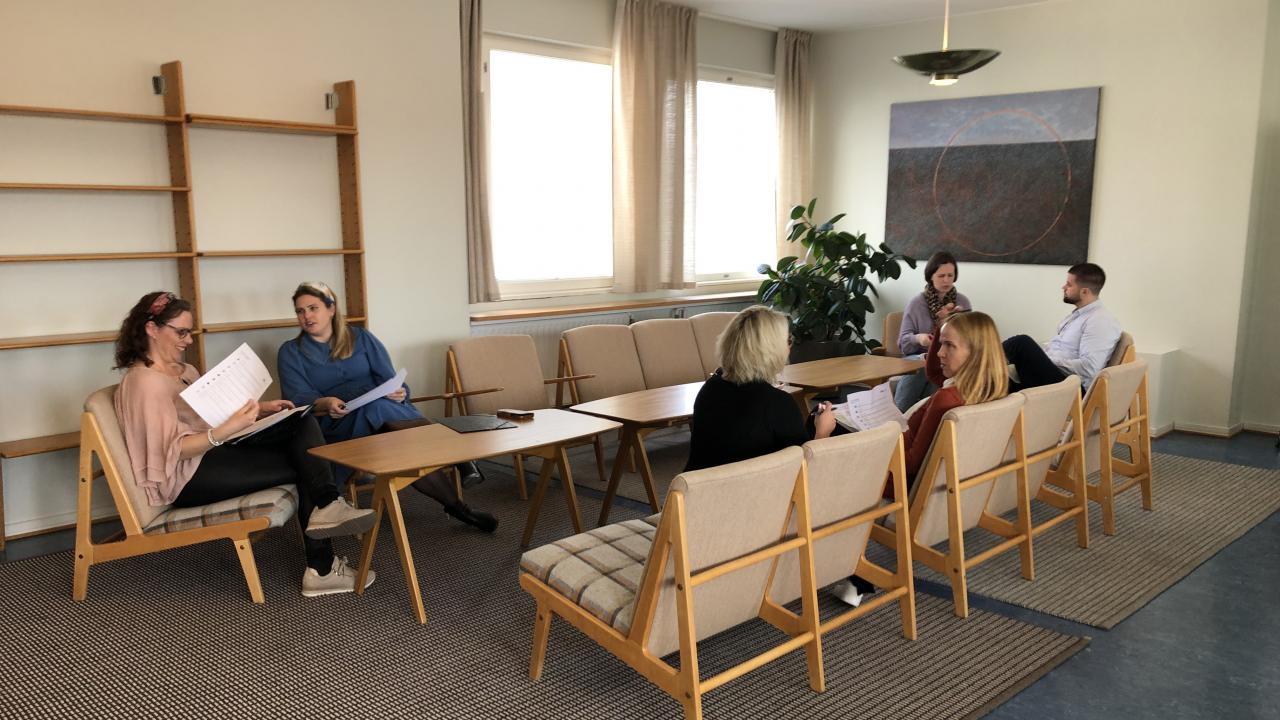Staff coaching: “I do not only learn things about myself, but also develop myself by understanding others”

The initiator of the pilot programme at Hanken is our Professor of Practice Christina Dahlblom.
- I have held many similar programmes at different companies and they all turned to us for assistance when the staff already experienced problems. Most employees still struggle with the same issues everywhere. My dream would be that students get coaching support already during their studies, but we wanted to do the pilot programme for the staff, says Dahlblom.
The important thing for the planning group, which also included coaches Eeva Jaakonsalo and Åse Fagerlund, was that it would be possible to gather the group live, as part of the purpose was for the staff to be able to network. The group is indeed very diverse and consists of researchers, teachers and administrators.
The group of 18 participants has had a couple of meetings and we asked some of the course participants how they have experienced the coaching.
Why are you participating in the programme?
- I joined the programme to reflect my way of doing things at work and in life and to seek new perspectives for improvement. I also wanted to change the scene from daily work routines in Vaasa and meet more people at Hanken in Helsinki as a work excursion, says Man Yang, Assistant Professor at the Department of Management and Organisation.
- My first reaction was not to participate, simply because “the lazy person” in me saw that it meant extra work, time and energy spent on this, but then again I thought it was great that Hanken offers programmes like this to the staff, and the resumé of all three coaches was too impressive to say no, states Johanna Liljequist, international coordinator.
- I wanted to learn to better use my strengths at my work. My current position is new at Hanken, and therefore I also thought that this programme would help me to learn to balance between different expectations and to prioritise my work. The programme has, especially after the pandemic, also been a wonderful opportunity to connect with new and old colleagues, Henna Konsti, integration and career coordinator, underlines.
What do you think so far?
- So far, I have greatly enjoyed it. Considering a lot of the topics we discuss are actually related to my own field of research, it is not always new to me, but I really like listening to what both the teachers and colleagues have to say. What has been peculiar to me, personally, is the fact that I do not only learn things about myself, but also develop myself by understanding others better through listening to them, says Steven Schoemaker, doctoral student at the Department of Marketing.
- The sessions have been good and energising! I have made contact with people I would not meet otherwise, and it is interesting to note that certain insights are common to all regardless of position at Hanken. In order to get the most out of the programme, you should also do the tasks we get between the sessions, but I am not quite there yet. I reflect on some elements a lot afterwards, Charlotta Niemistö, Project Manager at the competence centre GODESS, comments.
Who do you think could benefit from the programme if future rounds are arranged?
- I think it is important that you are ready to reflect critically on your way of working. It would be good if a programme was arranged for the managers at Hanken, as there are many structural challenges that the employees cannot influence themselves. In that case the managers would understand the context if the employee puts forward wishes in e.g. development talks, Niemistö points out.
- I think that we should offer a workshop similar to this one to students. It would be very helpful for students to understand themselves, what drives them, and particularly useful to understand each other, Schoenmaker states.

